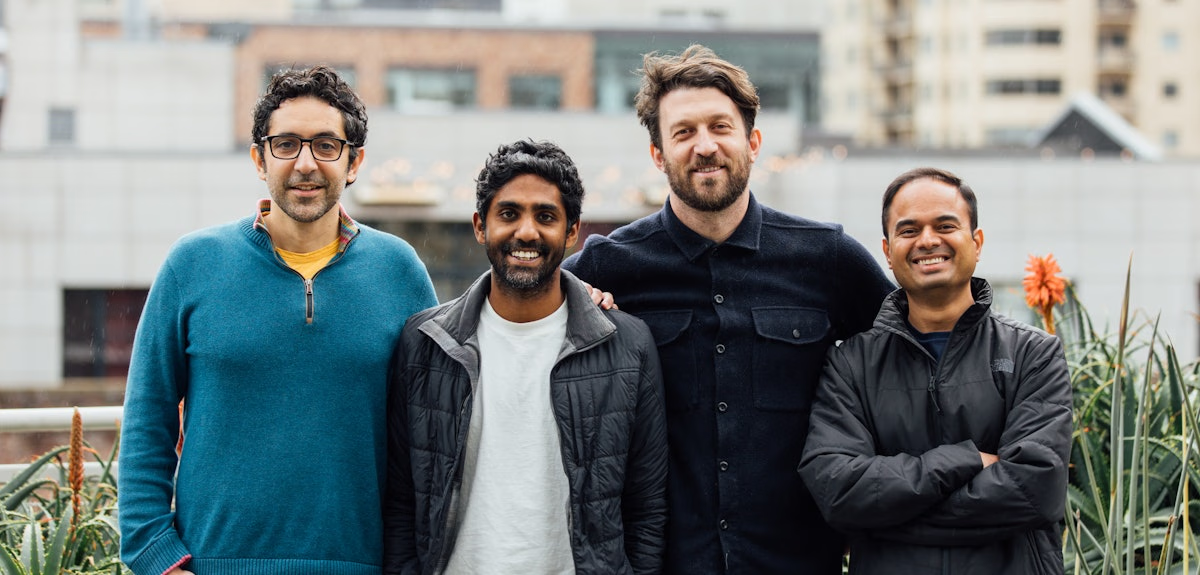
Defining Your Culture: How We Created Blackbird’s Operating Principles
Sam Wong explains how we defined our Operating Principles here at Blackbird.
Since the beginning of Blackbird, we have remained true to our mission and values. They have helped us grow from a handful of people just three years ago to more than 40 talented and ambitious humans today. But while our mission and values speak to what we do and why we do it, they don’t define what is the Blackbird way of doing things. So recently, we made the decision to develop our own operating principles.
Operating principles define a company’s cultural norms, or your operating values. Inspired by our friends at Dovetail, we wanted to share why we decided to undertake this activity now and how we went about creating our six operating principles.
We hope that by sharing our approach and our own Blackbird Operating Principles (BOPs), it might spark your own exploration into developing your company’s operating principles, or, if you’re exploring working with us here at Blackbird, provide a deeper, honest understanding of how we focus our ambition, make decisions and take action.
Why Operating Principles Are Important To Us:
As we grow, we want every Blackbird to be able to have an internal compass for making decisions with more autonomy and less ambiguity. This comes from everyone in the team having a better internalised understanding of what the ‘Blackbird way’ is. By clearly articulating this internal compass, we can assess performance across both technical competence and cultural fit. We can coach the behaviour we want and give each other feedback about the things that we’re thinking, saying and doing that are or are not in keeping with Blackbird’s values.
We also wanted to better signal to potential Blackbirds what it’s like to work here, help us test for cultural fit without resorting to cognitive bias (eg: ‘you worked at X type of company before so you’ll be able to work like we do here’).
How We Did It:
Our Chief of Staff Sophie Taylor and I first looked into ways that other companies, like Stripe and Twilio, had developed their own operating principles. This helped inform our own collaborative approach. By having the team co-create our BOPs, they could feel true ownership over them.
We wanted a collaborative environment to draft these principles together, and our full-team offsite was the perfect setting. It’s the one time per quarter all our teams come together (many in-person) and there’s always a lot of energy and ambition generated in these sessions.
Ahead of the offsite, we provided context to the team on the session: why we were doing it, what ‘good’ looked like and some direction as to how to think about what an operating principle could be. We also asked each team member to complete a short form by sharing three examples of ‘a time you’ve seen Blackbird at its best’.
Our automation king Clark Carter used Zapier to turn all the form responses into a Miro card on a Miro Board we used for the session.
Leading up to the offsite we also discussed how we should be defining our operating principles. We decided we would define every operating principle not just in the positive, but by articulating why people would not like that principle, or what kind of people would not thrive in this environment. For example, “Do you want to do good in the world?” is not a clarifying question for a BOP. Almost no-one will answer that in the negative. These questions must be able to allow someone to rule themselves out of our culture.

Based on this, I developed a workshop outline, grouping the ‘Best of Blackbird’ Miro cards by theme so that we could split the team into smaller groups on the day and have each group work on one operating principle. The examples provided would help each group capture those themed examples as an operating principle.
In our offsite, we followed the workshop outline and split into groups of 6-7 people to develop the individual principles. The teams used the following framework:

Following the offsite, Sophie and I workshopped them into the BOPs and shared them with the team for edits and feedback.
As a result of our work together, I’m excited to share our Blackbird Operating Principles with you:

Blackbird is a startup. No task is too small for us and no ambition is too big. We are scrappy, move quickly, and don’t hesitate to roll up our sleeves and dig in. Everybody works outside the confines of their job description - the partners often have to get their hands dirty on these smaller tasks (and will always be included in the weekly chore roster).
Working outside the traditional confines of your job description has huge benefits too. Nobody is too ‘new’ or ‘junior’ at Blackbird to live up to their ambition. We care about the quality of thought, not where it came from. On your first day, you could pitch a $100m deal to the Investment Committee and on your 1,000th day you could be taking the bins out.
Questions you should ask yourself

Feedback is great, solving the problem yourself is even better. We have a culture of continuous improvement - to collaboratively improve our systems, processes, relationships and everything in between. You might have noticed that we didn't really have an effective employee onboarding process and created one yourself. You might question the status quo: taking it upon yourself to reinvent a "that's how it is always done" process. You might start something new without telling anyone, just because you’re passionate about it.
We encourage an ownership mentality on everything you touch. You have permission to take action and initiative to build fast, fail and to make things better. You are literally an owner. Blackbird is yours to build.
Questions you should ask yourself

We are big believers in Danny Meyer’s philosophy of enlightened hospitality: service is the technical delivery of a product but hospitality is how the delivery of that product makes its recipient feel. Enlightened hospitality is at the heart of everything we do at Blackbird. We are generous with our time to create delightful experiences for others, never losing sight of the people through the numbers.
The atomic unit of success at Blackbird is not only our returns, but also the relationship with the founders of our portfolio companies. This means we’re constantly questioning the way in which we serve our founders through our communications, our products and how we spend our time. We also survey teams internally to improve the focus on hospitality in how we work cross-functionally - from collecting NPS scores for our internal events to surveying the investments team monthly to measure and improve the way our operations team assists in transactions.
Questions you should ask yourself

We encourage our founders and ourselves to lean into our mistakes and failures, not shy away from them. The more you hear the words mistake and error, the less likely you’ll be to repeat those mistakes and errors in the future.
We are all beginners. We have re-invested in founders even though their first startup we invested in failed. We’ve had failed rocket launches that the Partners have actively celebrated publicly. We track an anti-portfolio of the great AU & NZ companies that we missed. We keep each other accountable through direct, constructive feedback.
Questions you should ask yourself

We’re not homogenous in our way of thinking. We’re stronger because we each think differently. While we operate as a team, we strive to create a safe space for you to sing your own song and challenge the norm. We’re in the business of making decisions and you sharing your dissenting opinion makes us all better decision-makers.
Questions you should ask yourself

Serving a founder with a 1-to-1 relationship is magical, but what happens when we need to serve 1000 founders? How do we create magic at scale? We believe the solution to scaling effectively is building with a product mindset rather than a service mindset. A product mindset allows us to scale our efforts exponentially rather than linearly.
Questions you should ask yourself
If you're considering joining us at Blackbird, or you're looking to develop your own Operating Principles, I hope you've found this helpful. Let me know what you thought on Twitter.



.jpg)








